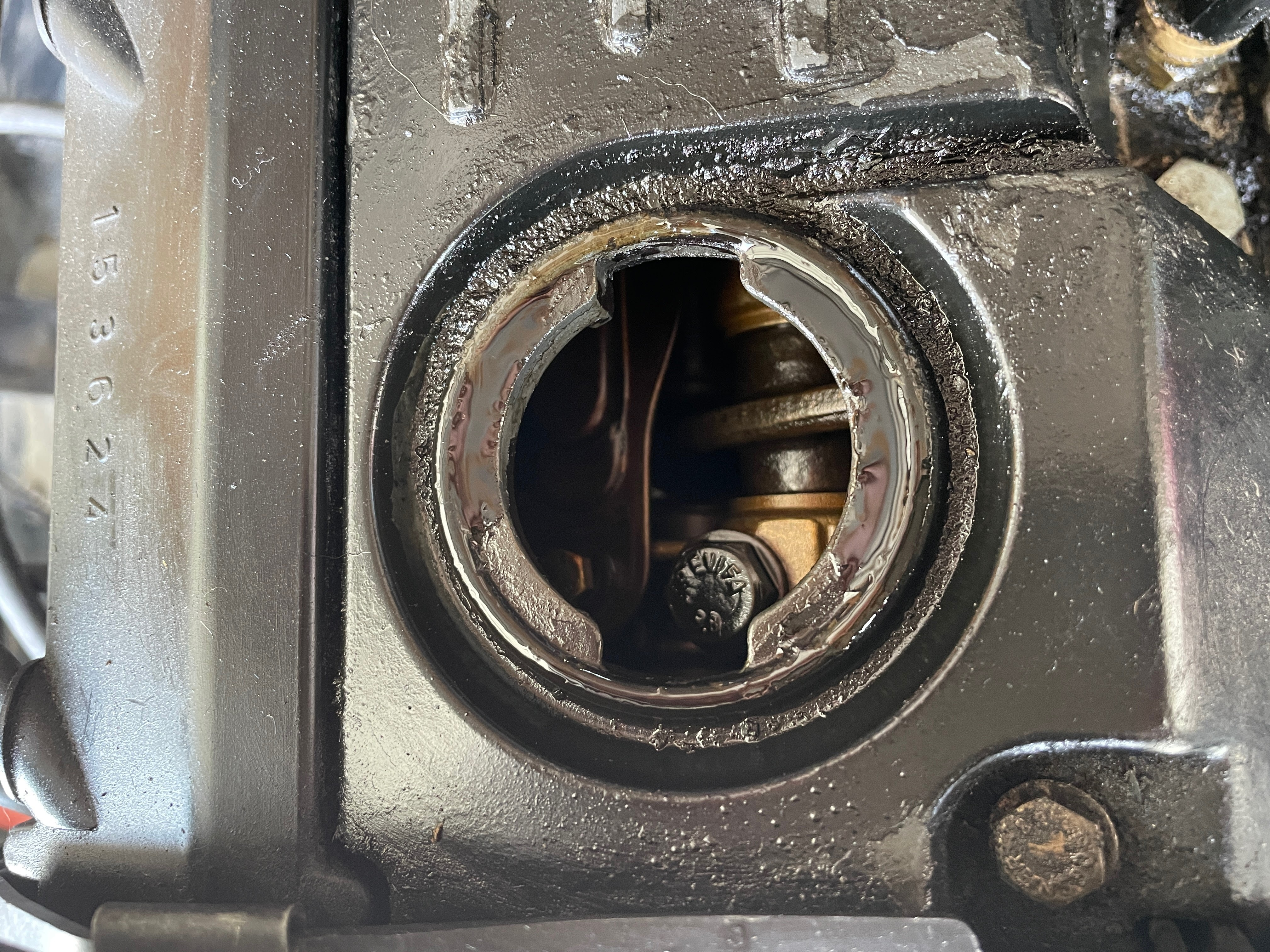The Simple Act Of Maintaining Your Car, Part 1: Oil Changes
It's the one thing dealers try to sell you as a package when you buy a car. Shockingly, there's a good reason for that.
Car maintenance. While many of you see that phrase and understand its meaning and the responsibility it entails, many of you may have approached this phrase with a shrug, leaving your car's future up to gods that preside over these mechanical wonders. I've seen the outcome of those shrugs over my years around shops, dealers, and even social media. It isn't pretty.
For the next few weeks, I'm going to take you through the most simple of maintenance items — the common questions myself, friends or people in the industry have come across — and why these items are essential to the health of your vehicle. I will also walk you through how you can easily do some of these items, right at home.
This is part of our "Jalopnik Beginner's Guide" series, where every week, myself, and other Jalopnik writers will take you through our own or other professional's steps to navigate something you're curious to tackle in our car culture. From establishing a wowing-exhibition at Sebring to wrenching projects and the simplest of how-to's, we'll help you do it, or fail trying.
There's a reason why one of the items dealerships will try to sell you with your new car is a maintenance package that consist of paid-for oil changes. There's a laundry list of other items important to keep on top of, but without oil (and yes, this could apply to gas as well), your car won't run well for very long — or ever again— if you let it go too long.
Oil keeps things moving. If you've ever used oil for anything (food, cars, and uh, other stuff...), oil makes it easier for two objects that typically wouldn't move well together without it, well, move. If you have ever had the privilege of running your car into a solid object like an actual car, or steel pole, you'll notice that metal doesn't rub well against metal at all. In fact, sometimes your car will get caught on the object and cause damage like scrapes, scratches and gouges, across the contact point.

This can also happen in your engine. Your engine is a block of metal, with metal componentry inside that needs to move to propel your car anywhere. A metal cylinder shape may fit into the cylindrical combustion chamber but will not be able to for very long due to friction, which creates heat. Heat causes those metals to expand and things stop moving. This is typically when your engine will have "seized," if you've ever come across that term.
So oil plays an incredibly special and important role in this setup. Oil not only lubricates the metal parts and chambers to ensure things continue to move, but it also helps remove carbon and other built up deposits from the "combustion" portion of the engine, as well as plays a role in removing heat from the metal componentry. Removing heat is one thing, but oil also keeps your engine "clean." That's why if you've ever seen fresh oil going into an engine, it's a pale brown color, but when you change it, it's near black.
Like anything else you would use to clean, like a paper towel, that "cleaning" object has a life span and can only absorb so much before you have to wring it out or change it out. And that goes for oil. After 5,000 to 10,000 miles, you're likely fine, but you'll have some dirty oil. You've reached a max capacity for what debris that oil can absorb. Beyond that, if you continue running your car without changing the oil, the debris that oil has been trying to clean out is now just a part of the oil. And like adding flour to a sauce, it's just going to get thicker and thicker and thicker until it's nearly a solid, known as sludge:
There's also this scenario, but that's likely due to a thickening additive added to someone's oil and made for this beautiful oil-flavored Jello mold:
You don't want that in your engine.
To prevent creating sludgey oil in your car and rendering your car likely useless, you should get an oil change. The recommendation from most dealers and shops used to be to get your oil changed every 5,000 miles or six months, whichever comes first. From my local VW dealer, they typically tell me to come in around 10,000 miles, or once a year. While synthetic oils have been tested to last longer in vehicles, I personally cannot bring myself to reach that 10k mile mark. I'm usually in at 5k.
Also make sure to do some research on where to get your oil change. There are too many horror stories of oil shops cutting holes in an expensive car's bib (which protects the underside of your car) to get to the oil pan instead of removing it to do the oil change. When in doubt, ask a car friend for a recommendation. And it pains me to say this, but sometimes a dealership isn't a terrible place to go for your oil change, either, because they will likely know your car, have all the parts needed on hand, and lately for myself, it ends up being cheaper.
I personally like to do oil changes myself, and when I don't, I use my network of people to find out the best places to go. And doing an oil change is not the easiest maintenance item to do on your own, but once you learn, you'll be able to do them for life and save yourself the hassle of trusting your car/vehicle in someone else's hands.
I'm not going to break down how you can do your own oil changes this week. Luckily, we're a car enthusiast site and we have plenty of education materials referring to why oil changes are important, to this handy video that shows you how to do it all by yourself:
Some Myths About Oil & Oil Changes
Myth: Your car burns oil
While your car can burn oil, it is not like gasoline where you should need to fill it after a few to several startups. Several years ago, at a dealership I had been working at, we had a customer who would come in weekly to have her oil checked on her older Chevrolet Captiva. Without fail, each time she would come in, her engine would require at least a quart of oil, potentially more. Having run into her so often, I finally asked why she continued to refer to them as "fill ups" and why she was coming in so often. She genuinely and earnestly explained to me that she thought you had to fill up on oil like you do gas for your car.
Typically if you're losing oil that quickly, there's a good-sized leak, or in some cases what's called, "oil consumption." These engines do tend to burn oil, and it's a defect. Notoriously the engines in certain Chevrolet Equinoxes had this exact problem. This isn't normal.
Myth: You have to change your oil every 3,000 miles
While you should change your oil frequently, every 3,000 miles is fairly unnecessary. Due to the nature of synthetic oils, they're designed to last longer in the engine and keep things running cleaner for longer. The 3,000 miles were typically associated with cars back in the day using the full "dinosaur" oil, or straight up oil, which is not used in vehicles today. I would typically tell customers with new vehicles that 5,000 miles was an acceptable period if they insisted on shorter stints between changes.
Do you have any tips to keeping up on your oil changes, or myths that need addressing? Add them in the comments! And stay tuned next week as we address tires.
